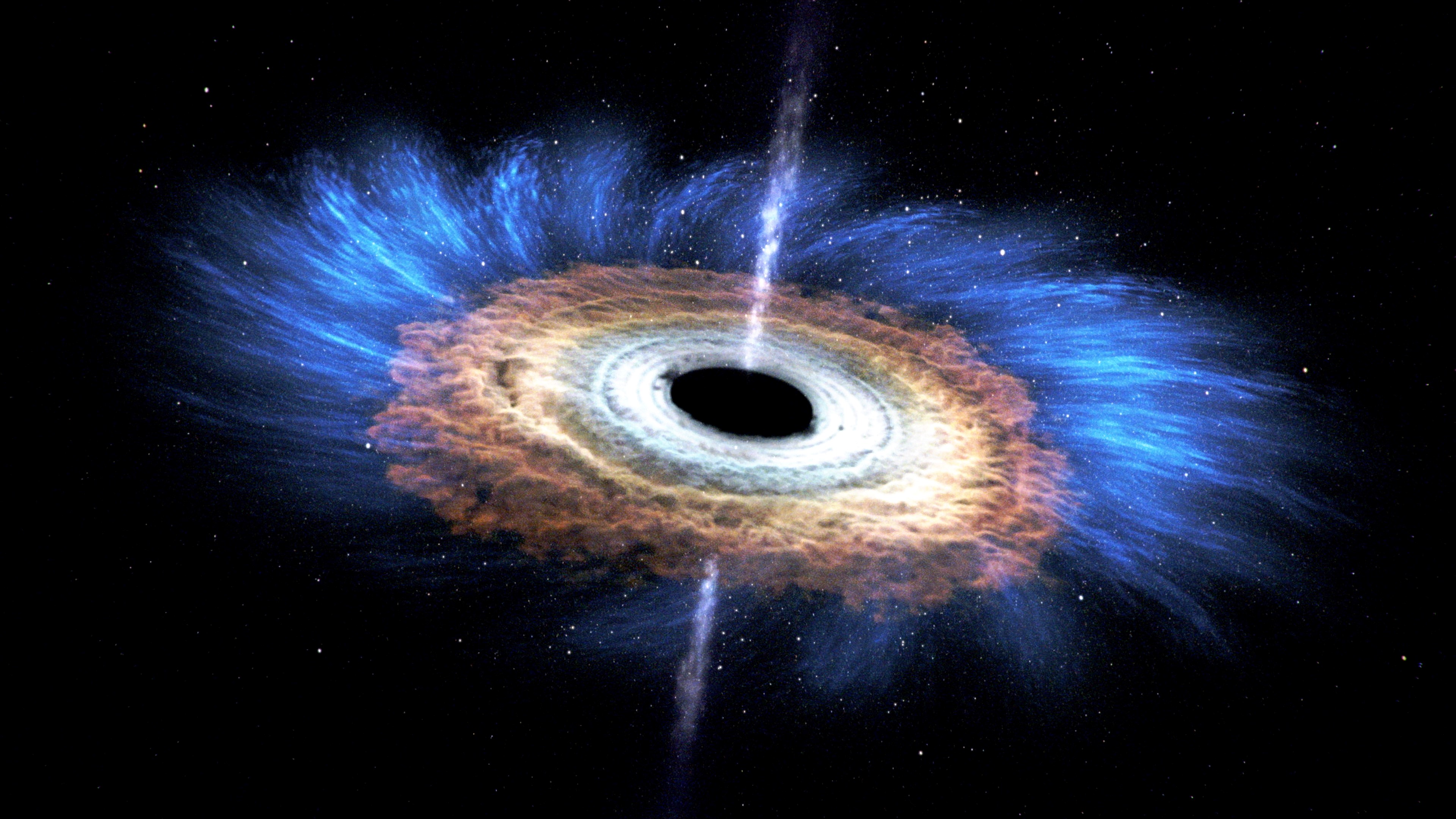A massive black hole may help scientists establish a better timeline for our universe


A free daily email with the biggest news stories of the day – and the best features from TheWeek.com
You are now subscribed
Your newsletter sign-up was successful
Scientists can now estimate when stars first began to light up the cosmic universe, thanks to the discovery of a supermassive black hole, NPR reports.
The black hole is 800 million times larger than our sun, nestled inside a bright object called a quasar, which is an emanating light that took 13 billion years to reach Earth. The black hole formed only 690 million years after the Big Bang — aka, when the universe was just 5 percent of its current age, NPR writes.
This behemoth black hole formed when stars were beginning to alter the cosmic universe by exposing objects to light. This is also around when elements on the periodic table, like hydrogen and helium, began to form. Using the black hole, scientists can now predict when stars began lighting up the universe within an accuracy of about 1 to 2 percent.
The Week
Escape your echo chamber. Get the facts behind the news, plus analysis from multiple perspectives.

Sign up for The Week's Free Newsletters
From our morning news briefing to a weekly Good News Newsletter, get the best of The Week delivered directly to your inbox.
From our morning news briefing to a weekly Good News Newsletter, get the best of The Week delivered directly to your inbox.
A team led by Carnegie Observatories' Eduardo Banados published the discovery Wednesday in the journal Nature. One scientist compared the team's discovery to finding a needle in a haystack — a very large and old haystack.
Read more about the study at Nature.
A free daily email with the biggest news stories of the day – and the best features from TheWeek.com
Elianna Spitzer is a rising junior at Brandeis University, majoring in Politics and American Studies. She is also a news editor and writer at The Brandeis Hoot. When she is not covering campus news, Elianna can be found arguing legal cases with her mock trial team.q
